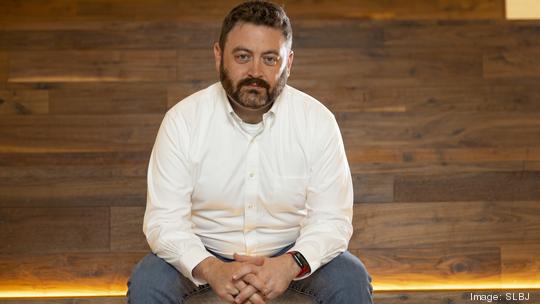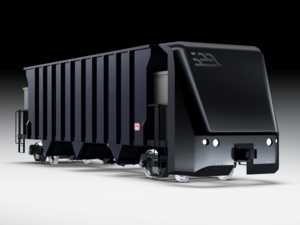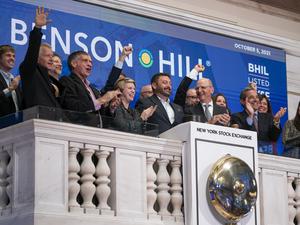
With its acquisition this week of an Iowa-based manufacturer of food-grade soy products, St. Louis agtech firm Benson Hill (NYSE: BHIL) says it's in a position to capitalize on both its near and longterm vision for growth.
Benson Hill CEO Matt Crisp said his company’s $102 million deal for ZFS Creston LLC, a manufacturer of white flake and soy flour in southwest Iowa, allows it to scale up commercialization of its plant-based protein ingredients while also positioning it for a more lucrative revenue source in the future.
Founded in 2012, Benson Hill, which describes itself as a "food tech company," has developed technology, called CropOS, that uses data science, artificial intelligence and machine learning to help improve crop varieties with better accuracy, nutritional value and sustainability than traditional breeding methods. Its two major business units are its ingredients division, which develops and commercializes ingredients for the plant-based foods market, and its fresh segment focused on producing healthier produce.
Benson Hill says its acquisition of ZFS Creston marks a “final step” in being able to turn its soybean varieties into soy protein ingredients for human and pet food. The deal comes after Benson Hill in September 2021 acquired a Seymour, Indiana, soybean crushing facility.
Those acquisitions come as Benson Hill sees immense opportunity for its ingredients business to grow alongside increasing demand in the plant-based protein market, which is projected to reach a compound annual growth rate of more than 18% between 2019 and 2025, per research firm Arizton Advisory and Intelligence. Crisp said the recent acquisitions allow Benson Hill to scale up its ingredients production more quickly than developing facilities on its own.
“The time is now because of the immediacy of the market opportunity and the significance of market opportunity,” Crisp said.
In 2021, Benson Hill harvested 70,000 acres of its soybean varieties. With its Iowa and Indiana facilities, Crisp said Benson Hill now has the necessary processing capacity to reach an amount of soybean acreage necessary to scale up and prove out its technology and production model. It will also enhance its ability to form future partnerships and licensing deals with other food and ingredients producers developing plant-based ingredients and food products.
“It solidifies our ability to reach the critical mass of market penetration necessary to deliver our expected higher-margin licensing and partnership model. We continue to believe between 250,000 and 500,000 acres is the proper footprint for us to drive crop and ingredient production efficiencies, reduce risks across our supply chain and reach adequate scale with our end markets,” Crisp said.
Benson Hill harvested Licensing deals and partnerships are expected to be a key pillar of its business model in future years, according to an investor presentation the company published last year. Benson Hill’s revenue from production partnerships and royalties is projected to reach an estimated $36 million in 2023 and grow to $726 million by 2027, when it would account for nearly half of the $1.5 billion in revenue it expects to generate that year, according to investor presentation.
Benson Hill last month said it finalized the 2021 harvest of its soybean varieties, which included the commercial launch of its ultra-high protein soybeans. The recent harvest included heavy focus on data analysis, Crisp said.
“We knew more about our harvest after this fall before harvest was completed than we knew after our harvest completed the prior year,” he said. “This is important because these data help to ensure we meet our ingredient product specifications, improve supply chain efficiencies and further enhance the simulation and prediction capabilities of CropOS.”
The agtech firm expects to increase its acreage in 2022, with Crisp saying Benson Hill's farmer partners who plan to grow its soybeans again in 2022 on average have said they'd like to expand their acreage by 20% over last year's total.
Benson Hill reported a third-quarter 2021 net loss of $34.3 million on revenue of $32 million. That compares with a net loss of $16.9 million on revenue of $28.2 million in the third quarter of 2020. The St. Louis-based startup went public in September 2021 through a merger with a special-purpose acquisition company.











